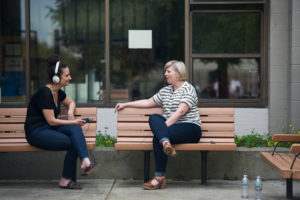Richard Florida, the influential theorist and writer responsible for popularizing and lionizing the existence of what he called “the creative class” and in doing so, many would argue, helping transform American urban centers into playgrounds for wealthy professional classes, has now decided he was all wrong. Jacobin Magazine reports that Florida’s newest book, The New Urban Crisis, is a “long mea culpa,” acknowledging that “The rise of the creative class in places like New York, London, and San Francisco created economic growth only for the already rich, displacing the poor and working classes. The problems that once plagued inner cities have moved to the suburbs.”
The problems of gentrification and their endlessly multiplying ramifications are hardly new for San Francisco residents and visitors alike and Hit Parade has been contending with the ways in which these changes have once again changed the shape of the city’s musical identities. We’ve posted about it at length and discussed it during our Live Rehearsals. But in this moment, when Florida, the posterchild for waterfront condos, fancy ballparks, high-priced housing, and disappearing local arts spaces, has decided to rethink his dangerous policies, the connection is worth revisiting directly.
Every one of the musicians we interviewed for this project spoke about the loss of performance spaces, the loss of rehearsal spaces, clubs and bars closing, and what the lack of all-ages spaces has done to SF’s musical landscape. Here is Tanya Yule, musician, former Program Director for Blue Bear School of Music in SF, and co-founder of SF Popfest talking about Café Du Nord:
“Something that affected the music school greatly was the loss of Café Du Nord… We had ran our showcases, we put bands together and we have shows… We used to do them at Café Du Nord for years and when they closed, that was a huge upset… The loss of Café Du Nord was a loss for the city. It was a great venue. It was like the nice… kinda like you could still take your parents there but you could see… indie shows or jazz shows. They were really awesome support of the communities… And we’ve been struggling to find places for all-aged bands to play. And that’s the other thing. We have… 20s, 30s, 40s somethings in bands. But what we need to be concentrating on as a city is the 15 year-olds that are in bands and that’s getting harder and harder. Parkside, Bottom of the Hill, Brick & Mortar… And if these places can’t make money off of booze sales… they don’t want to take these kids’ bands…. That’s what I worry more about.”

Tanya Yule being interviewed by Inna Arzumanova at the Western Addition Library. Photo: Beth LaBerge